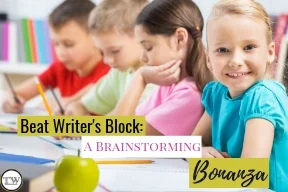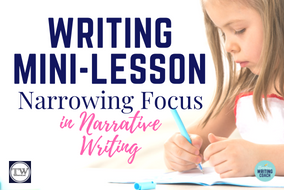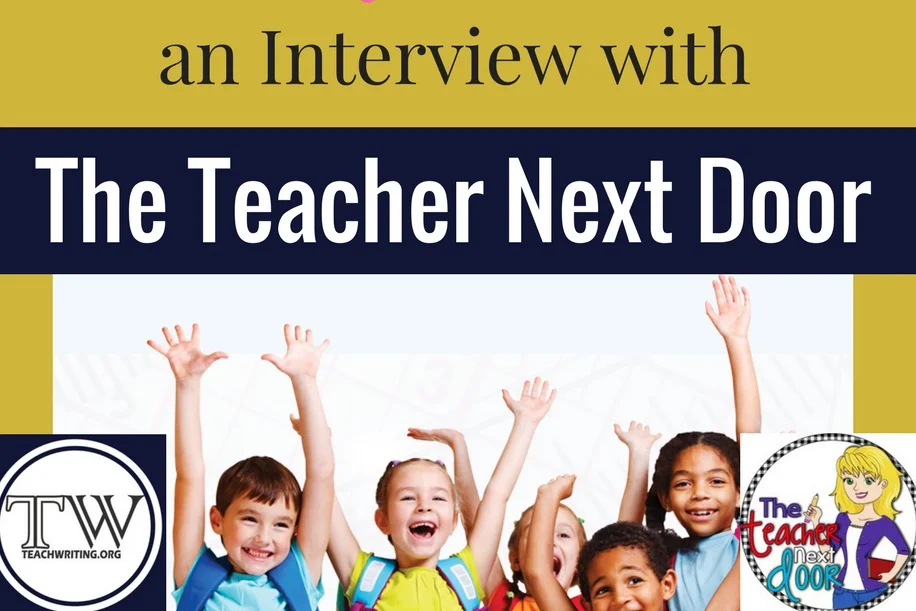Connect reading and writing with meaningful activities that will help students grow as readers and flourish as writers with these easy to implement daily writing about reading ideas.
Read MoreTo me, learning how to brainstorm is a critical skill to advance the writing process. Students genuinely need direct instruction and allocated time to practice how to brainstorm. Without teaching this skill, students are likely to deem it fruitless, skip to outlining, and eventually find themselves in a writing rut.
Read MoreTeaching the writing process to early writers can be challenging. Read along to find helpful strategies and ways to hold your students accountable when it comes to taking ownership of the writing process with fidelity!
Read MoreIt’s that time of year where things are finally starting to click. The procedures have been modeled and practiced, the writing tools have been introduced, and the writing stamina is starting to grow.
Read MoreDuring writer’s workshop, I do not deviate from the standards I am responsible for teaching. Here’s where my conflict arises: I want my young writers to experience writing in a fun, free, engaging and enjoyable way; I want them to let loose, relax, smile, and laugh! I will describe four activities I always have available for my students to help them tap into their creative side.
Read MoreA HUGE mistake I see many Elementary writers make is trying to write a story about a topic that’s too broad. Instead of focusing on a small slice or seed of the story, they try to cover EVERYTHING that happened from when they woke up to when they went to bed. Here is a mini-lesson that will help your students narrow their focus to a specific event.
Read MoreIt’s that time again. You know what I’m talking about. Everywhere you go, you see school supplies on sale. Dollar bins overflowing with markers, scissors, and notebooks. It can only mean one thing… Back-to-school time!
Read MoreIncluding a reference section in student writing notebooks is essential! Read to learn more about ways to set up the resource reference section and to gain suggestions on types of resources to include. Students will become more independent writers when writing skills and strategies are at their fingertips!
Read MoreLooking to improve students attitudes toward writing? I will show you how to get started with writing warm-ups in your elementary classroom.
Read MoreIn order for students to learn to effectively write responses to text, we must teach them how to cite evidence and explain it. Here is an easy formula to teach students how to write an effective response to text.
Read MoreWhen the classroom expectation is that students will be collaborating about their writing and sharing what they wrote with others, they begin to take ownership in their written pieces. Learning how to effectively collaborate is a skill that must be explicitly taught, practiced, and then practiced some more!
Read MoreGrabbing and holding the reader's’ attention is what makes or breaks a story. I don’t know any teachers who get excited to read 30 narratives that begin with the same boring opener. I have taught 2nd - 6th grade and I expect more from my students. The lead is an important element of the story and should take effort and thought.
Read MoreStephanie Moorman from Teaching in Room 6 has been inspiring teachers and supporting student writers for two decades now. She has graciously agreed to share her best tips for motivating students to write here on teachwriting.org! Read this post to find out what Stephanie has to say about motivating students to write.
Read MoreI was so fortunate to have the opportunity to interview Jenn Larson, also known as The Teacher Next Door, about her top tips for implementing a writing workshop in elementary and the relationship between reading and writing. Jenn has been teaching for over 20 years, and over the course of her career, she has developed strategies to help students produce their best pieces of writing and to help teachers navigate writing workshop.
Read MoreI love graphic organizers. There is something about the organization and structure they provide. With regards to writing, there is often some debate about whether or not graphic organizers are appropriate for elementary school children. Some educators believe that writing should be totally creative and free flowing. However others believe students need support and structure with writing. In order to be successful writers, I believe students need exposure to both.
Read MoreDuring the last couple years, I started to embrace collaborative peer writing strategies. You know the old saying, "Two heads are better than one?" Why should it be any different with writing? With a collaborative, peer writing culture in the classroom, students inspire each other, become exemplars, generate dynamic ideas, increase confidence, and become critical observers.
Read MoreBack to school. A fresh start. A new year. Oh, the possibilities! In this post, I'll share some of my tips for setting up a writing block in elementary school.
Let’s get this year started right…with writing!
Read MoreJust like our students, not all struggling writers are the same. Some students struggle with writing because they are stuck for ideas. You know the kid…the one who proclaims, “I don’t know what to write,” then shrugs and stares blankly at you. Those are also often the students getting up to get another drink of water and staring at a blank page. These students struggle with getting started and knowing what to write about.
Read More

















